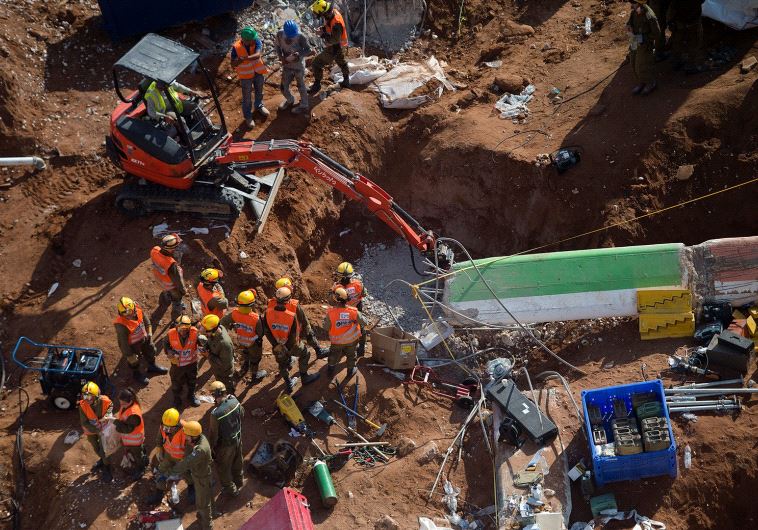Safety collapse
There seems to be a policy of ignoring safety rules and a lack of enforcing regulations and ensuring that people who violate them are punished.
 Scene of building collapse in Tel Aviv's Ramat Hachayal neighborhood(photo credit: IDF SPOKESMAN’S UNIT)
Scene of building collapse in Tel Aviv's Ramat Hachayal neighborhood(photo credit: IDF SPOKESMAN’S UNIT)